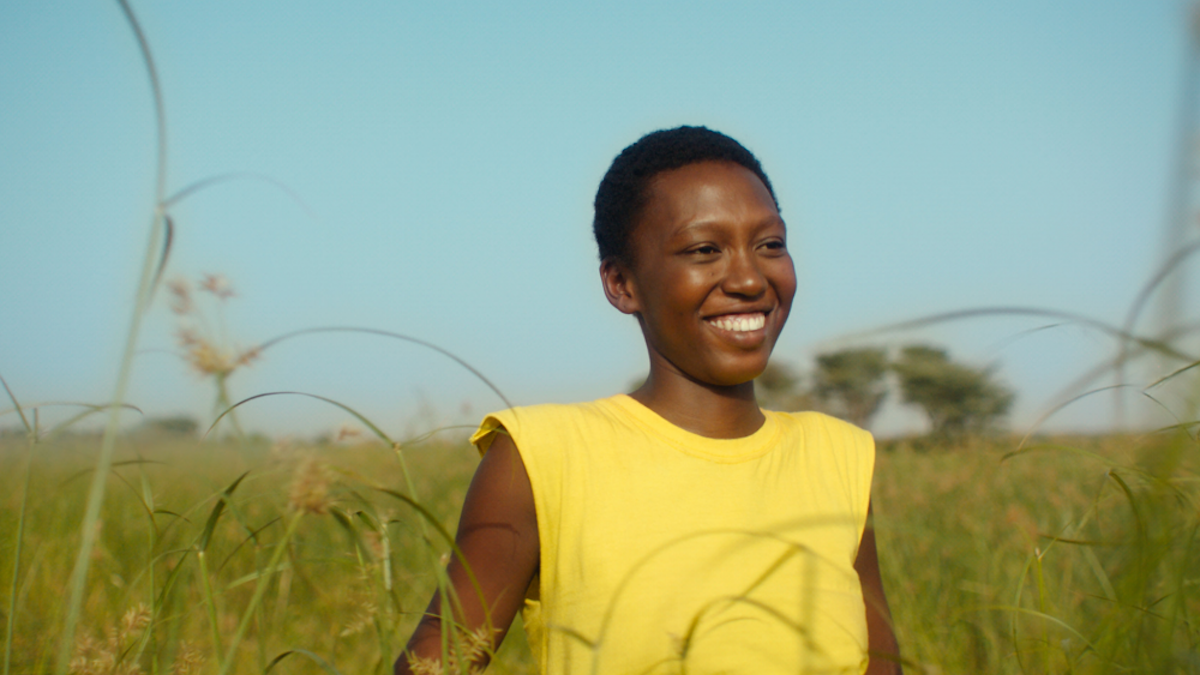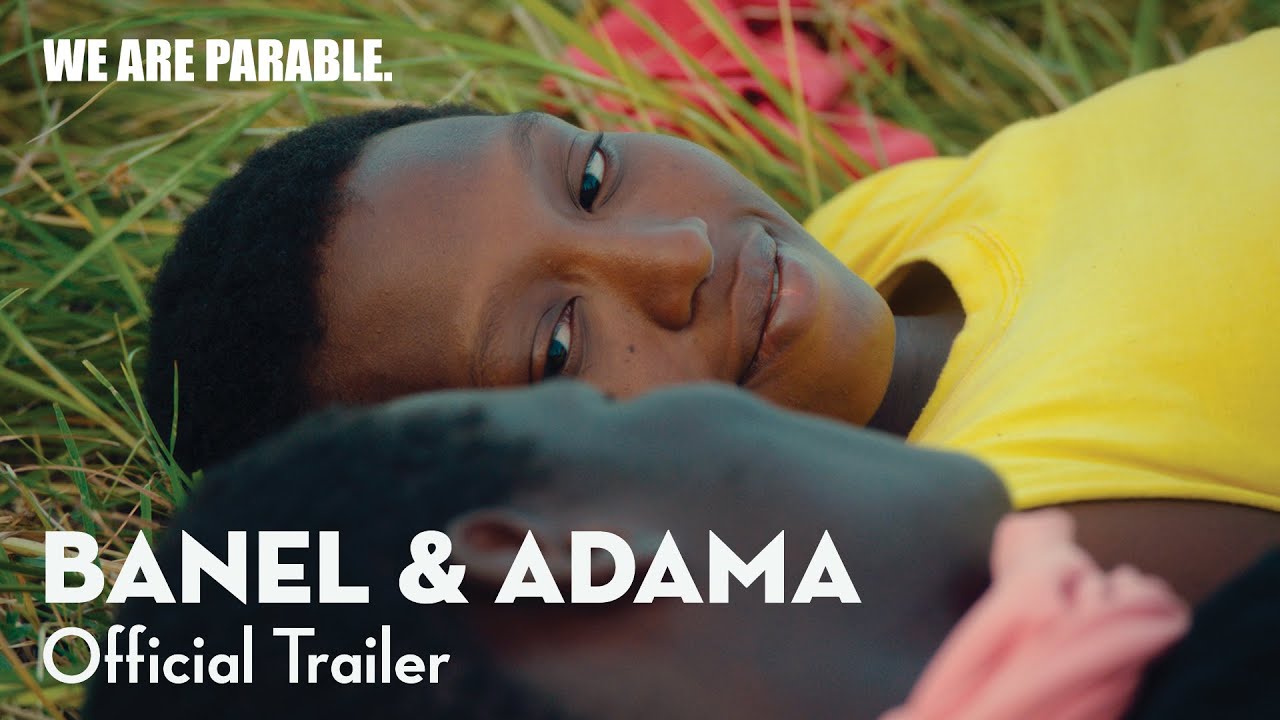"A striking debut that puts Sy on the map as a purveyor of deceptively gorgeous visions that show flimsy desires at the mercy of the social, and literal, weather." - Sophie Monks Kaufman, Indiewire
"A distressingly searing love story that moves to its own rhythms, curiosities, impulses, and havoc for a shrewd picture of the heavy balance between loyalty to one’s community and devotion to each other." - Robert Daniels, OkayAfrica
"With its balletic choreography of performance and statuesque visual approach, Sy’s film is a work of remarkable composition." - Caitlin Quinlan, Little White Lies
Opens June 14 | Ramata-Toulaye Sy’s romantic and epic feature film debut (her short film ASTEL was presented at the 28th Black Harvest Film Festival) is set in a rural village in Senegal. Young, spirited Banel is happily married to her gentle husband Adama, the brother of her deceased first husband. Their partnership is passionate and equitable, though traditions threaten their relationship, with Banel pressured to take on domestic responsibilities, and Adama expected to inherit the role of village chief. The young lovers reject these customs, incurring disapproval from the locals, and possibly triggering catastrophic consequences. Premiering in competition at the Cannes Film Festival—the only debut granted that honor—and Senegal’s submission for Academy Award consideration, BANEL & ADAMA is a bold and hypnotic love story. Film Center exclusive.
Awards & Nominations
Nominee - Palme d'Or, Cannes Film Festival
Nominee - Gold Hugo, New Directors Competition, Chicago International Film Festival
Winner - Bright Horizons Award, Melbourne International Film Festival
5 QUESTIONS WITH RAMATA-TOULAYE SY
(Interview from May/June 2024 Gazette)
The Film Center was proud to present your short film ASTEL as part of our 2022 Black Harvest Film Festival, so it is a special honor to present your feature debut BANEL & ADAMA. How did you approach making the leap from your first short to your first feature film?
I wrote and finished the script of BANEL & ADAMA in 2014 when I was in my last year at La Femis; it was the script I presented for my diploma. In 2020, when I was finally ready to direct, the producer who had the rights to the project asked me first to write and direct a short movie, because they didn't want me to dive directly into a feature. So, I wrote and directed ASTEL, and a few months later I was already in pre-production on BANEL & ADAMA. But I'm so happy I did the short before the feature (because at first I didn't want to direct a short) because I learned a lot about the set; the casting process; and working with the actors, the director of photography, and the whole crew.
Thanks to the experience with the short, when I began pre-production, I was more confident with my ideas, my choices. When I did ASTEL, I had never been on a set, so I was afraid of managing a set and a crew, and my choices were wise, conventional—and I was so well-behaved. But on the set of BANEL & ADAMA I felt more free and more confident in my ideas. I was not a conformist. I was just being me and doing the movie I wanted to make.
What inspired you to write BANEL & ADAMA?
I wanted to write the most beautiful, powerful, greatest African love story. I wanted to propose a universal story based in Africa, a new narrative—a story really different from what we used to watch in African cinema. Not a story about war, migration, oppression, or terrorism—just normal people in love. I also wanted to write the story of Juliet who will become Lady Macbeth. I always loved literature, so for the character of Banel, I took inspiration from Medea, Antigone, Phaedra.
Finally, I didn't want to do a naturalistic movie, so it was important for me to bring magical realism, tales, and poetry to this story; I took inspiration from Toni Morrison, Maya Angelou, Jesmyn Ward, Gabriel García Márquez.
The Film Center welcomes a strong audience of students studying film. What is one piece of advice you'd give to an emerging filmmaker?
Always be honest with yourself, and tell and write the story you want to tell and not the story you think will please others. Even if you think your story is childish or naive or not-so-smart or "auteur.” Because you can't fool the audience. The audience can feel when the story doesn't come from the heart.
What is a memorable moviegoing experience you've had?
Weirdly, the most memorable experience I had was when I was little and watched movies at home on TV. My parents don't come from a culture of cinema, so I barely went to the cinema when I was young. But I was allowed to watch movies on TV on Saturday and Sunday nights, and my mum recorded a lot of them. The movie I remember most is THE TEN COMMANDMENTS from Cecil B. DeMille. I had it recorded, and with my siblings we watched this movie 100 times at least. We knew all the dialogue by heart, and it's one of my first memories of cinema, with TERMINATOR 2 from James Cameron as the second.
What film do you watch again and again?
My problem is that I like to watch films that I like again and again (same for the books and TV shows)! But lately I like to watch ATTACK THE BLOCK from Joe Cornish, PRIDE AND PREJUDICE from Joe Wright, and SICARIO from Denis Villeneuve.
The Film Center is ADA accessible. This presentation will be projected without open captions. The theater is hearing-loop equipped. For accessibility requests, please email filmcenter@saic.edu



